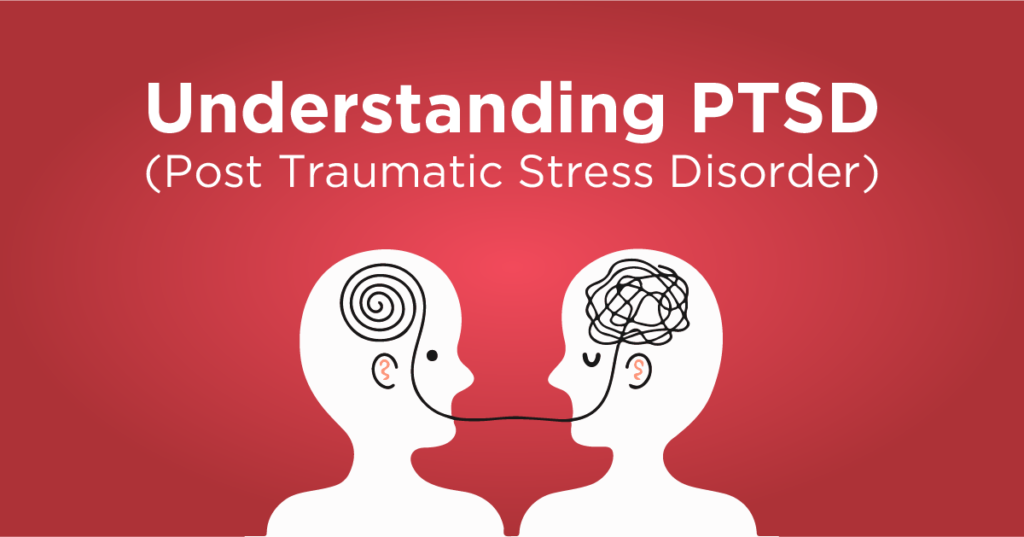PTSD is a very real and emotional issue that many people deal with. It can be hard to know what PTSD is, how you get it, and how to treat it. In this blog post, we will discuss all of the information you need about PTSD so that you can make an informed decision on whether or not treatment is right for you.
Contents
What Is PTSD?
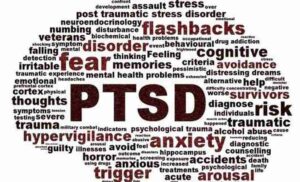 PTSD is a mental health condition that can occur in response to trauma or prolonged stress. This condition is characterized by intrusive thoughts, flashbacks, nightmares, and avoidance behaviors. Symptoms of PTSD can be very disruptive and may significantly impair a person’s quality of life. The full name is Post Traumatic Stress Disorder.
PTSD is a mental health condition that can occur in response to trauma or prolonged stress. This condition is characterized by intrusive thoughts, flashbacks, nightmares, and avoidance behaviors. Symptoms of PTSD can be very disruptive and may significantly impair a person’s quality of life. The full name is Post Traumatic Stress Disorder.
PTSD is an anxiety disorder with symptoms that can be triggered by exposure to a traumatic event, such as rape or violence. PTSD causes severe psychological distress and physical problems in some people who experience it after experiencing trauma.
There are a number of different treatments available for PTSD. Some people may benefit from therapy, medication, or self-help strategies. It is important to seek treatment if you are experiencing symptoms of PTSD.
PTSD can be a very challenging condition to live with, but there is help available. You don’t have to suffer in silence. Seek out treatment and start getting the support you need.
Symptoms of PTSD
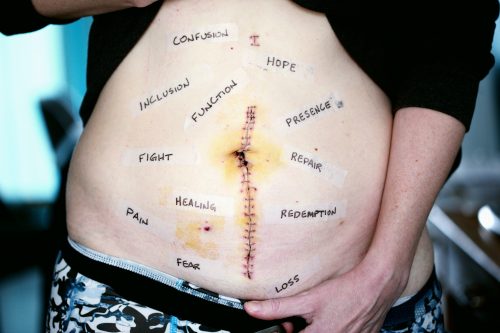
There are many symptoms of PTSD. Some of the most common symptoms are listed below:
Flashbacks
Flashbacks are a common symptom of PTSD. You may experience flashbacks as a re-experiencing of the traumatic event, such as seeing images or hearing sounds from that moment in time.
Intrusive thoughts
Another common symptom is intrusive thoughts about your trauma. These are unwelcome and repetitive negative thoughts related to the original incident(s). For example, you might not be able to stop thinking about an assault or other difficult situation over and over again after it happens.
Avoidance behaviors
You may also try to avoid any reminder of your past trauma including people, places, activities, etc. This can make day-to-day life challenging since avoiding certain things limits your daily routine options significantly.
Emotionally Numbness
PTSD can also lead to emotional numbness. You may feel like you are not able to experience any positive emotions, or that your emotions are very muted. This is often referred to as “constant vigilance” or being “on guard.”
Nightmares/Sleeplessness
Nightmares are another common symptom of PTSD. After a traumatic experience, you may have nightmares about the event or similar situations over and over again. You might also find that it is difficult to sleep at night due to thoughts running through your head related to your trauma.
Anger/Irritability
You may also experience anger or irritability as a symptom of PTSD. These symptoms can be related to feeling triggered by something that reminds you of your trauma, such as seeing an image in the media about violence, for example. You might find yourself having angry outbursts over insignificant issues at times too.
Physical Symptoms
Some people with PTSD may not have any disturbing psychological symptoms but only physical ones instead. Physical pain is often considered an expression of emotional distress by many mental health professionals so this isn’t entirely unheard of for those with PTSD. This can include things like feeling sick regularly, chronic aches and pains in various areas of the body, etc., all without any clear explanations why these issues exist in some individuals who experience them after exposure to traumatic events/circumstances.
Causes of PTSD
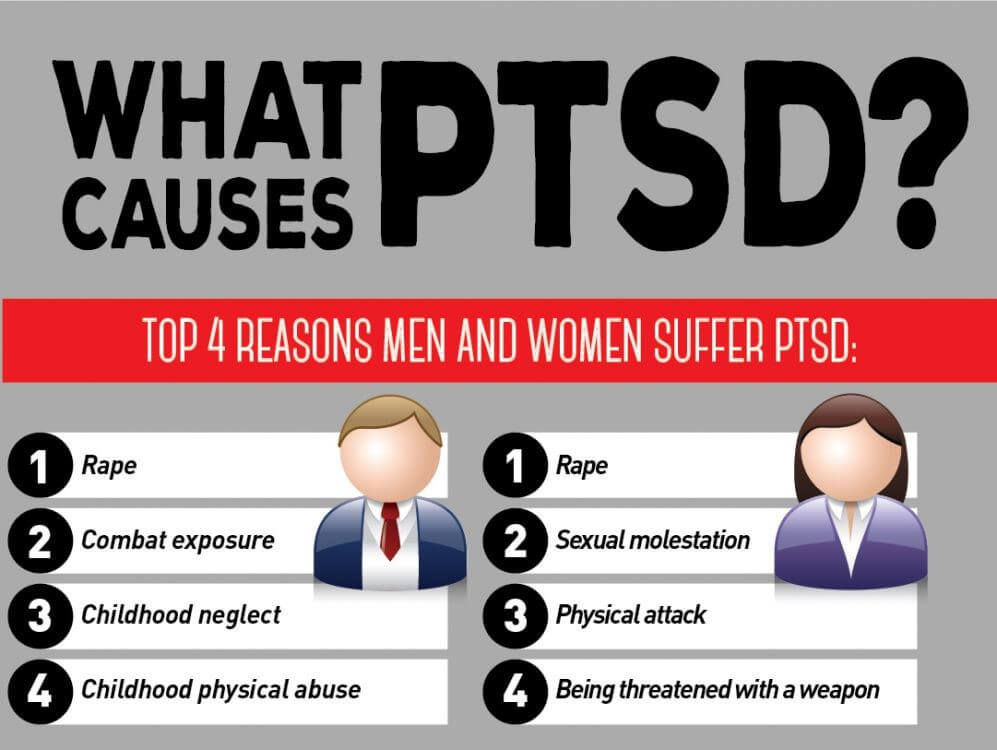
There can be major emotional and psychological consequences as a result of experiencing significant trauma. Some of these are:
Accidents
This can include things like a car accident, airplane crash, or another type of traumatic event that is not typically considered life-threatening. This type of event can still result in PTSD symptoms for some individuals.
Military Combat
This is one of the most common causes of PTSD. It’s estimated that around 20% of military veterans returning from Iraq and Afghanistan have PTSD. This type of trauma can be incredibly difficult to cope with due to its nature of it.
Sexual Assault Or Abuse
Rape, sexual violence, and childhood sexual abuse are all major risk factors for developing PTSD later on in life. This is because they involve an individual being violated and experiencing a high level of fear, helplessness, or horror.
Torture
Those who experience torture, severe physical abuse (assault), or confinement are at risk for PTSD. This can include things like being held captive by another person against your will and/or enduring regular beatings over a long period of time.
Neglect
This can also be a traumatic experience, especially in childhood. This is when an individual experiences emotional or physical neglect from those who are supposed to care for them (parents, guardians, etc.).
Death of Loved One
The death of someone close to you can result in the development of PTSD. This might be due to the intense pain and trauma that is associated with losing somebody you love. Additionally, the circumstances around the death (violent/sudden) can also increase your risk of developing PTSD.
Natural Disasters
Living through a natural disaster such as a hurricane, tornado, earthquake, etc., can also cause PTSD in some people who experience it. This is because these events are usually unexpected and can cause a great deal of damage and chaos.
Other Traumatic Experiences
There are other types of traumatic experiences that can lead to PTSD such as being in a serious car accident, being mugged or assaulted, etc. If you have experienced any type of trauma that has left you feeling scared, helpless, or horrified, there is a chance you could develop PTSD later on in life.
Negative Impacts of PTSD
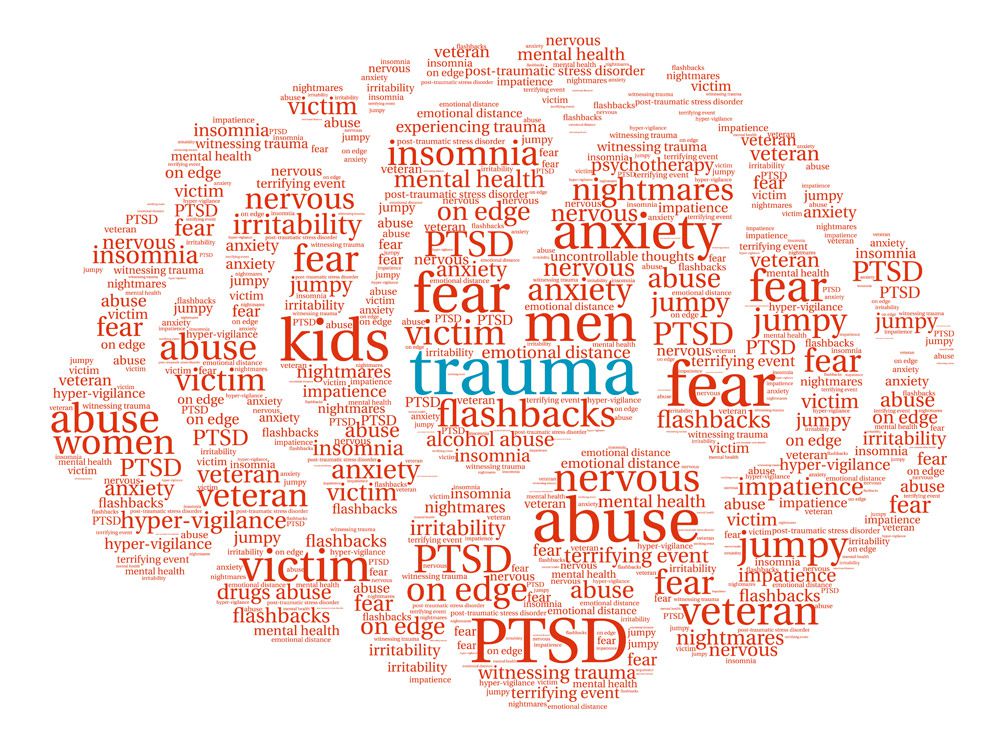
There are many negative impacts that can result from PTSD. Some of these include:
Depression
This is a very common symptom of those who have PTSD. This includes feelings like sadness, hopelessness, lack of motivation, or interest in activities you once enjoyed doing, etc., on a regular basis for an extended period of time. It’s important to understand this isn’t something you should feel embarrassed about and it doesn’t make you weak either – rather it simply means you’re human and experiencing some difficult things as a result of your past traumatic experiences.
Ongoing Anxiety
Anxiety disorders such as OCD (obsessive-compulsive disorder) are often associated with those who experience significant stress over long periods of time due to trauma they’ve experienced. This is because anxiety itself can be a result of PTSD. It’s important to get help for this which you can do through developing coping mechanisms, therapy, and/or medication if necessary.
Self-Harm
This includes cutting or other types of self-harm. One typically dies this in an attempt to relieve the pain one feels during these times. This is when they’re feeling helpless or out of control. These behaviors are often associated with bullying, sexual abuse, assault victims who have been shamed by others after their traumatic experience(s), etc., but it isn’t limited to these circumstances alone. Those who don’t receive treatment may continue engaging in self-harming behavior patterns even though there might not be any reason why anymore.
Suicidal Thoughts and Ideation
This is one of the most serious consequences of having PTSD. Thoughts about suicide and wanting to end your own life can be a daily reality for those who experience PTSD. This is why it’s so important to get help if you think you might be struggling with this issue – please reach out to somebody you trust or call a hotline in order to get started on the road to healing.
Diagnosis of PTSD
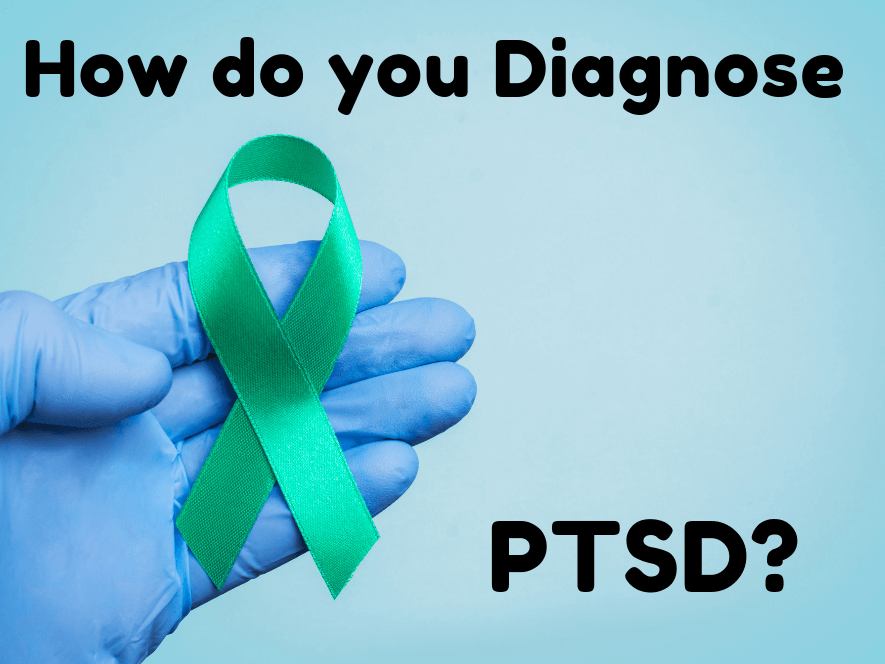
You can usually diagnose this condition with the help of a medical professional. He/she can observe your symptoms. They will also ask you about what has happened in your life that might be causing these difficulties. The other method of diagnosis is to complete a PTSD questionnaire which can be found online. Both methods are equally effective ways to get started on the path of healing and recovery.
Treatment for PTSD
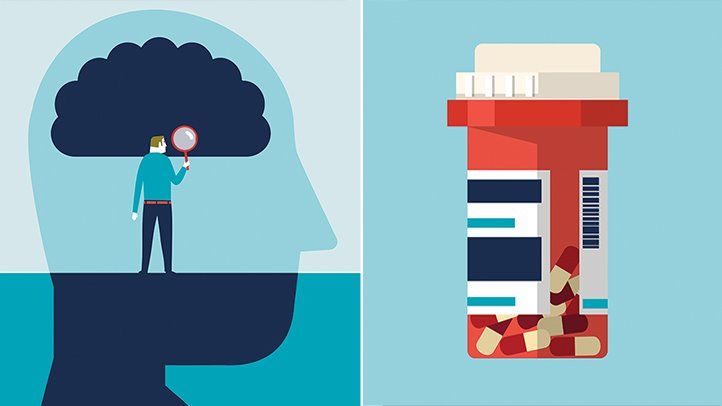
There are many types of treatment that you might consider if you have this disorder. It will also depend largely upon your specific circumstances or trauma history. That is why please reach out to somebody who is familiar with all available options. This is in order to discuss what’s best for you personally. Some of the treatment options are:
Medications
There are a number of different medications that are very effective in treating PTSD. These are such as antidepressants, antianxiety medications, and mood stabilizers.
Cognitive Behavioral Therapy (CBT)
This is one of the most common types of therapy that can PTSD. It helps you understand how your thoughts and feelings might be related to your symptoms so you can start making changes in order to feel better.
Eye Movement Desensitization and Reprocessing (EMDR)
This is another type of therapy that can be very helpful for those who experience PTSD. This involves focusing on certain eye movements while discussing memories or experiences from your past which may have caused difficulties. EMDR can also help individuals reprocess difficult memories. This is so that they no longer cause anxiety or other types of distress.
Self-Care
It’s important to practice self-care even if you’re receiving treatment for PTSD. This includes things like exercise, yoga, meditation, journaling, talking to a friend or family member about your experiences, and anything else that feels helpful and calming for you. Taking care of yourself is an essential part of the healing process.
Helping Someone With PTSD
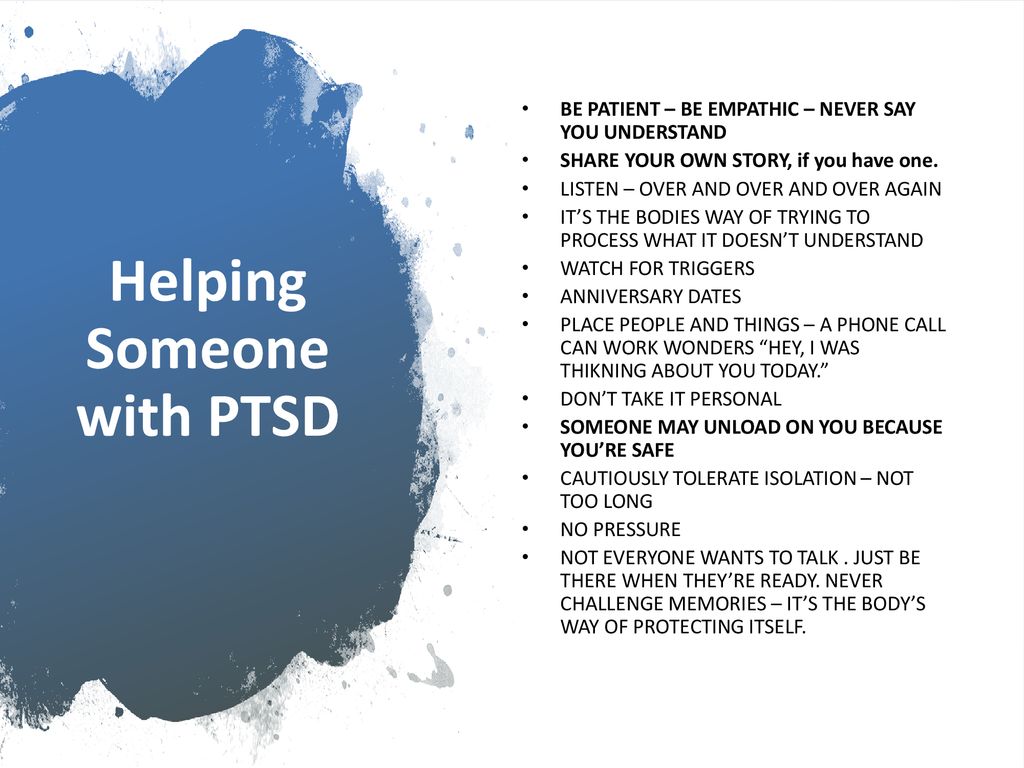
There are many things you can do to help somebody who is struggling with PTSD. Some of the most important things are:
- Listening without judgment is one of the best things you can do.
- Encouraging the individual to seek professional help if self-care isn’t sufficient enough on its own.
- Letting them know that you’re there for them and that they can talk to you about anything
- Helping them connect with resources like therapists, support groups, or online communities
- Reminding them that they are not their disorder and that they deserve to get better and live a happy life.
Conclusion
PTSD isn’t something you should feel embarrassed about and it doesn’t make you weak either – rather it simply means you’re human and experiencing some difficult things as a result of your past traumatic experiences. If you’re experiencing difficulties due to PTSD, please out for help. There are many treatments available that can help you start feeling better.
For more information, please contact MantraCare. PTSD or Post-Traumatic Stress Disorder is a mental health condition that affects people who have experienced or witnessed a traumatic event. If you have any queries regarding Online PTSD Counseling experienced therapists at MantraCare can help: Book a trial PTSD therapy session
